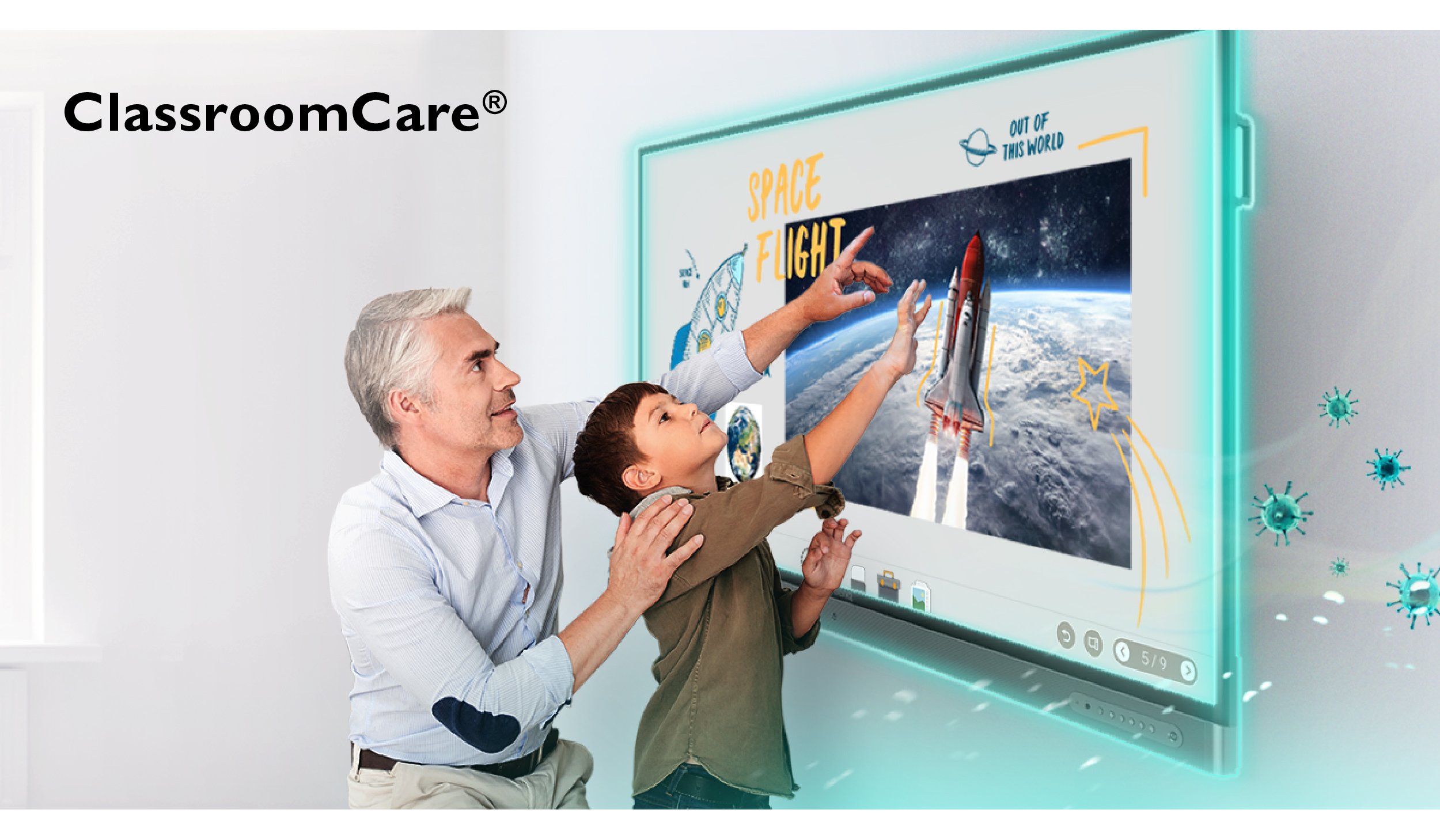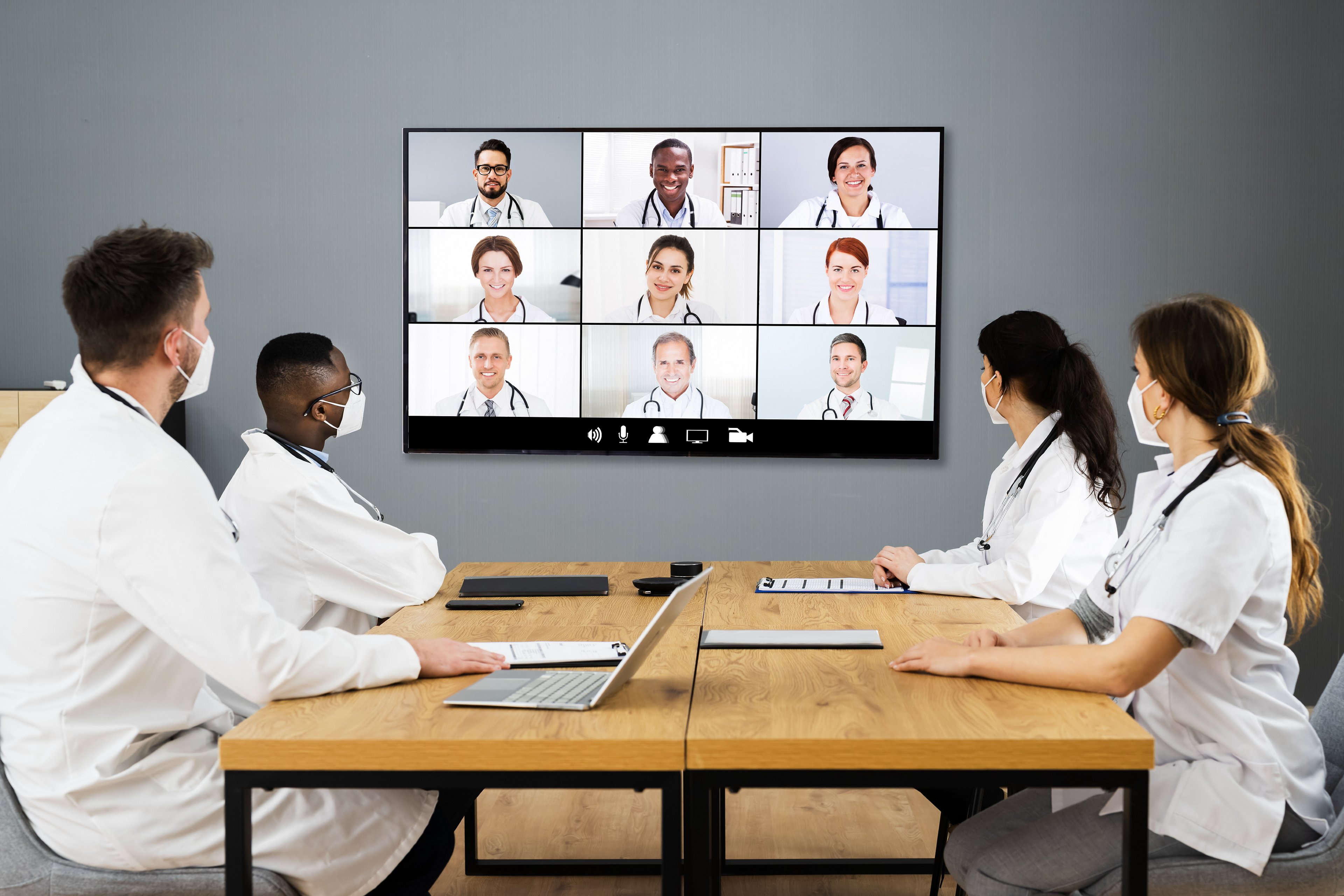Protecting Teachers' and Students' Health with BenQ ClassroomCare®
- BenQ
- 2022-01-07



Eindhoven, the Netherlands - Friday, 7 January 2022 – BenQ Corporation, the global leader in display solutions, strengthens their commitment to creating safe interactive learning environments for both students and teachers through ClassroomCare®, a comprehensive set of health-focused technologies developed by BenQ for their education interactive displays.
“BenQ has always been a step ahead when it comes to users' health,” said Peter Huang, Vice-President of BenQ Corporation, noting how ClassroomCare® technologies have continuously been incorporated into the company’s line of education solutions over the last decade. “With the pandemic, schools saw a greater need to make their classrooms safer for face-to-face interaction. Through ClassroomCare®, BenQ was readily able to support them with solutions designed to help schools meet their goals of creating healthier learning spaces.”
ClassroomCare® is divided into three main categories: germ prevention, air quality and eye care.
Since touching shared equipment may expose users to disease-causing pathogens, BenQ's interactive displays are fitted with screens that are coated with nano-ionic silver. Silver nanoparticles (AgNPs) are recognised by the medical community as an effective way to prevent the spread of bacteria - particular virus strains - and other microbes.
In 2016, BenQ was the first company to release an interactive display with a germ-resistant screen, which used a double-layer coating of nano-ionic silver. By 2019, this formula was modified to increase the concentration of AgNPs, while ensuring that it did not have any adverse effects on users' health. The latest generation, introduced in 2020, combines the nano-ionic silver with anti-glare coating and extends the screen’s efficacy to five years or more.
BenQ’s germ-resistant screen is the first-ever for large-format interactive displays to be recognised by TÜV Rheinland for its 99.9% effectiveness against common disease-causing bacteria like Staphylococcus aureus and Escherichia coli, among other germs.
By the end of 2021, the company has released other germ-resistant peripherals such as a stylus, to ensure that students and teachers are protected across all points of contact.
BenQ's interactive displays for education also come with air quality sensors that allow users to monitor carbon dioxide (CO2) and particulate matter (PM2.5 and PM10) levels in classrooms. Having a high concentration of CO2 in classrooms affects students' alertness in class, while prolonged exposure to PM2.5 is reported to cause long-term respiratory problems. Used in tandem with heating, ventilation and air conditioning (HVAC) systems, these sensors can help school administrators and teachers monitor the air quality of their classrooms so they can adjust ventilation accordingly.
Using digital screens and panels subject both teachers and students to a variety of eye-related issues. For example, prolonged exposure to blue light can potentially lead to eye strain or long-term macular degeneration. To minimise these risks, BenQ combined different eye care technologies for broader protection. BenQ's interactive displays are anti-glare, flicker-free and come with a blue light filter.
BenQ’s ClassroomCare® technologies have undergone thorough testing and have been certified for reliability, efficacy and user safety by reputable international organisations such as TÜV Rheinland, SIAA and SGS.
ClassroomCare® has been officially registered with the United States Patent and Trademark Office (USPTO), as well as other trademark registration organisations across Europe and the Asia Pacific.
To find out more about BenQ’s ClassroomCare® solutions, please visit https://www.benq.eu/en-eu/business/campaign/classroom-technology-solution.html.